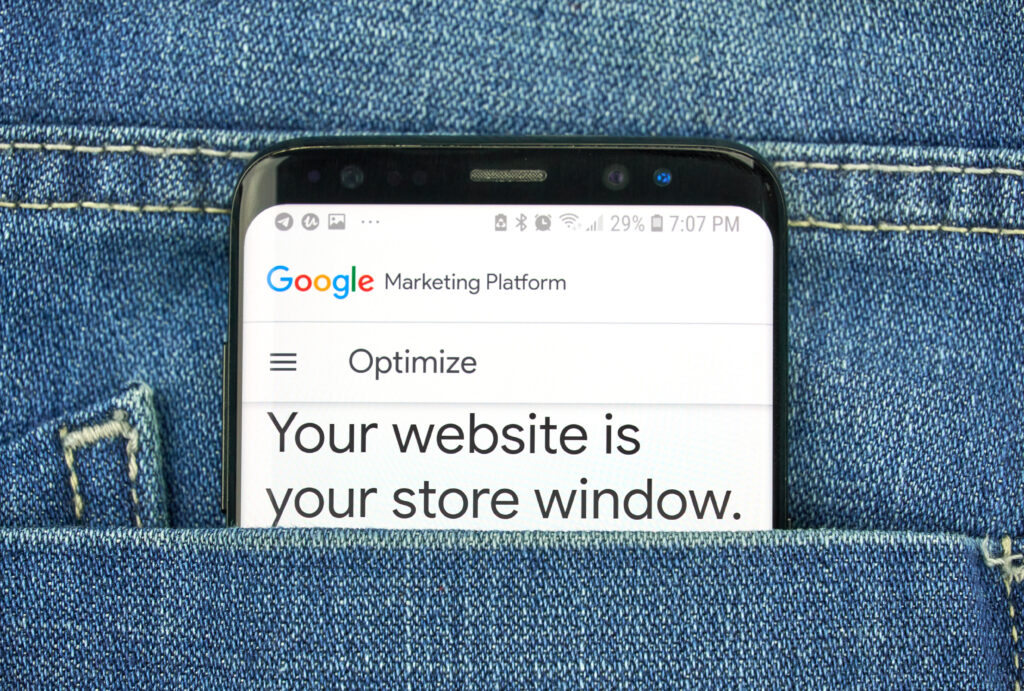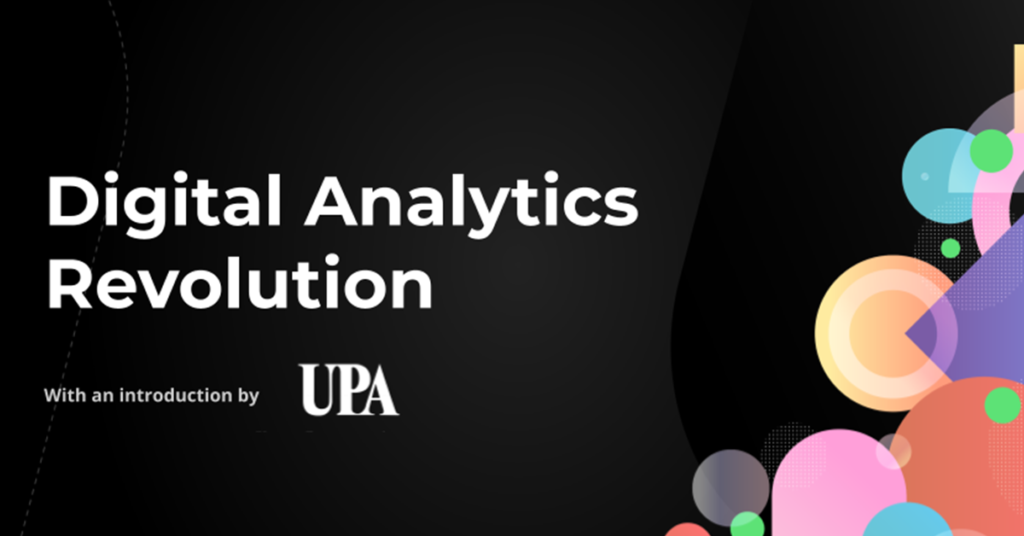In 2024’s 20 January episode, Nereo Sciutto, CEO of Webranking, talks with Enrico Pagliarini about the recent vicissitude of Meta and the Irish Authority and, more generally, about user profiling and personal data.
E.Pagliarini 🎙: An important item of news this week: the Irish Authority for the protection of personal data has imposed a new fine on Meta for violating European privacy laws, namely the GDPR.
The Guarantor in Ireland, where Meta has its European headquarters, has decided that the American company will have to pay 5.5 million euros for the way WhatsApp user data is handled. The fine is not very high, but it comes on top of the 390 million that Meta will have to pay for similar violations related to Instagram and Facebook.
What’s more, it should also be pointed out that the decision comes from the board of all European privacy regulators, who then delegated its actual implementation to the Irish authority, because Meta is based in Ireland. All in all, despite holding a different opinion to the other European authorities, the Irish authority has so far imposed fines on Meta for 1.3 billion euros and opened ten other proceedings against the company’s services.
Meta has six months to take steps to put things right, but has announced it will appeal, saying it believes its service is, indeed, in compliance with the GDPR. But, as we said in a recent, in-depth analysis on the subject, what is at stake is not only the business model on which the social networks managed by Meta are based, first and foremost, Facebook and Instagram, but also the entire industry of personalizsd advertising, advertising profiling and even, I would say, we users; all those of us who surf the internet, use applications, our whole relationship with what we might call the currency we use to pay for free services on our smartphones and computers. And if that mechanism were to be broken, our experience could also change.
I talked about this with Nereo Sciutto, CEO of Webranking and certainly one of the most authoritative and intelligent experts in digital advertising dynamics, and our discussion went like this:
N.Sciutto 🎙: On the one hand, this is a problem for Meta because they were the first, or one of the first, to be scrutinised after one or other national regulator submitted its case.
Being a sector where everyone works more or less to the same rules, and therefore uses some form of data collection to improve digital advertising, it is likely that other companies will also be drawn in and possibly also other countries will make the same claims against Meta itself. Today, the speed with which the Guarantors move varies, depending on the country or the trade associations of the countries that report this type of problem, so it is fair to assume that this is only the beginning, and that is what worries stakeholders.
E.P. 🎙: However, it could happen that other companies, seeing what is happening in Meta, take steps in advance and even change their business model a little.
N.S. 🎙: Actually, many already have. Google itself, for example, is heading the field in the process of what is known as self-regulation. In the sense that, when they began to feel that the market manifested a certain kind of need – which in this case is the rebalancing of consumer interest compared to advertising investors – they began to self-regulate, which is why some major announcements of game-changing rules came from the players themselves, and were not imposed by governments. As a rule, they try to stay ahead of the game, they want to make their move in advance because they know that, when the public regulator moves, things can get dangerous. So they say, ok, let’s try to offer the public regulators some kind of solution that is acceptable both for our wallets — because, at the end of the day, we still need to make a profit, that is, we can use digital services, like search engines, for free because there is an advertising system that covers the costs of the servers that make these services run.
So, to arrive at a system that still ensures they can effectively deliver advertising – thus achieving a profit to cover the costs and continue to provide us with services – it is actually preferable for them to self-regulate and many have already done so.
If anything, the problem is that some are still lagging behind. Then, there is the question of who owns the property. For example, in the United States, there was a big debate about Tik Tok being Chinese-owned; during the Trump presidency, it was argued that, on American territory, they should even go so far as to sell the assets because the data should only be American-owned.
The problem is that, at this moment in time, public regulators tend to move impulsively, egged on by private associations advocating very vocally on the subject of privacy.
E.P. 🎙: One risk is that things could go so far as to break this balance, leading companies to reconsider what services they wish to provide and, at the end of the day, it could be consumers who are left worse off.
We’ll see how Meta responds in the coming weeks, but it’s very likely that all Instagram and Facebook users will be asked a question along the lines of: “Do you want your data to be used and then receive personalised advertising?” Some people estimate that 90-95% or, at any rate, a very high percentage of users will say no, as they will still be able to continue using the service.
But what of us, the users? Here, I am not talking only about Facebook and Instagram users, but also about how developments in the sector might also affect other services.
N.S. 🎙: In my opinion, it is one of those issues where people have too little information to enable them to understand what is happening. And when I talk, for example, to college students — who are, after all, the most digitally-aware grouping around today – about topics like “what do you think privacy means?”, or “what are the data that interest advertisers?”, someone will say “my surname is an important item of data for an advertiser”. But, it really isn’t, because we don’t care who you are, this is not information that helps us work better. The way I see it is that people at the moment attach a lot of importance to the privacy issue, but they don’t really know what the repercussions are or what this privacy they so desire actually is, so they will answer a priori no to any kind of tracking.
In fact, the purpose of this tracking is to provide more targeted advertising, it is not actually an invasion of privacy, it is not active. An obvious example: I may be aware that a group of anonymous users — I don’t care who they are, I care only that this group of users has been identified by a code – is interested in looking for a holiday on the Romagna coast, as opposed to, say, a week in the Maldives or the Caribbean. So, this makes it really useful to me, if I run a hotel on the Riviera, to advertise my services to someone who is interested in the Romagna Riviera.
E.P. 🎙: I would say it is also useful to the people interested in visiting the Romagna Riviera. They will be happier getting ads about the Romagna Riviera than about the Caribbean.
N.S. 🎙: That’s right, this is the fundamental point. What will happen is that the very user who today is demanding more privacy, will receive a poorer service. So, when we also start browsing the site of a newspaper or of Radio 24, we will see ads that are totally random and not based on a perception, however soft or approximate, of what might interest us, for example, whether we are a man or a woman. This means we will receive less-relevant advertising: it is generally accepted that advertising ought not to be a nuisance and, if it is off target — that is, if it not in an area that interests us – then it bothers us a lot. And even relevant ads may annoy us sometimes.
The other problem is that publishers live by advertising: journalists are paid from advertising revenue; it is an industry that produces quality content, thanks to sponsors. So, what am I getting at? The internet doesn’t have the limits imposed on radio or printed papers, in terms of seconds or number of characters to abide by. A website can contain lots and lots of advertising, too much, and hence the problem.
If I know that I am reaching a group of people interested in my vacation on the Riviera, I can spend a little more because the publisher is giving me the opportunity to get closer to people who are really interested; on the other hand, if I were to reach out to all and sundry, even to people who are on vacation elsewhere at the moment and therefore cannot come to my hotel on the Riviera, I am going to spend a lot because I have to contact a much wider audience — this is what advertisers call the “reach” — and I will waste 99% of my efforts. So, from a purely professional point of view, I’m polluting because in the end I use more resources than I should, firing wildly into the air, hoping to catch the right person who, in the meantime, is probably somewhere else.
So, what does this mean? These companies will have to do much more advertising and, because it is such a lot, they are no longer willing to pay for it at present rates. In turn, this means the poor publisher has a lot more advertising to place in order to pay his bills but, whilst being paid less, he must deliver more. Users will receive lots of annoying advertising with no relevance to their own interests and, very likely, with lower quality content because the publisher has had to cut costs. So, to sum up: I believe that, today, we are reacting too impulsively to the problem and that things will reach a point – probably years hence, rather than months — when we will be saying, “how did we end up receiving such poor content? How did we come to this?” And so, little by little, people will decide to accept advertising profiling so as to receive better advertising, and begin visiting sites with which they will be more willing to share information, giving publishers the resources to produce better content. So, I anticipate we will do some back peddling. Today, you are right, 90% of people say “no”, but I foresee that, in a little while, in the interests of good user experience, they will feel the need for improved advertising.
E.P. 🎙: Could this refusal by consumers to release data perhaps be a kind of mass protest against publishers who have gone a little too far? I am turning you down because you are giving me a service that is too unbalanced, so this is also an invitation to increase the quality and, in the end, it will be as you say: in a few years, a balance will be found whereby you agree to release some data but, in return, you will get greater quality, both in terms of advertising and content.
N.S. 🎙: The important thing about Meta – above all, Facebook and Instagram, but also YouTube – is that there is actually no editorial input from the property owner. They’re publishers who don’t have journalists, so the only quality you can complain about relates to your friends, your contacts, the people in your timeline. So the paradoxical thing is that these folks have editorial competence that involves responsibility for third-party content, but the most curious thing is that sometimes, in some contexts, the best content you can get is advertising content.
For example, think of advertising content you might find on Tik Tok or Instagram, within a reel, often by a creator who produces something that is branded content, that is, financed by a brand, even though that brand may not necessarily appear.
Herein lies the paradox: sometimes interesting content is an advertisement and you are the one who chooses who to follow, and thus, what content to see. On the other hand, Tik Tok’s algorithm works on the basis that, depending on your level of interaction, more interesting content arrives for you; without data, your problem is that that you get random content.
Profiling serves to improve your user experience: sometimes, when using an editorial service, other times in the advertising that comes into your stream; whilst you are not able to “skip” it, at least you can select what is more interesting for you.




















 Discover UP
Discover UP Monitor UP
Monitor UP Level UP
Level UP